CBS researcher: Green transitions demand that CBS conducts more SDG-related research

(GIF: Emil Ernst Friis)
A total of 19% of the 7,680 research articles published by CBS since 1985 relate to SDG themes, a new report reveals. CBS researcher and author of the report Kristjan Jespersen argues that if the Danish government highlights the SDGs in its policies, it is only logical for CBS to follow suit. Moreover, too little of CBS’ SDG-related research reaches the classrooms, the report concludes.
The UN’s Sustainable Development Goals are everywhere. At conferences, events, as pins on ministers’ jackets and in corporate strategies. But the themes they represent are addressed in research too.
Kristjan Jespersen, Assistant Professor at the Department of Management, Society and Communication at CBS, has investigated how much of CBS’ research published between 1985 and February 2020 relates to the SDGs, and concludes in his new report that of the 7,680 peer-reviewed research articles, 1,499, or 19.07 percent, relate to at least one of the SDGs.
“The SDGs have become a national framework. Everyone, from governments and small and medium-sized companies to multinational corporations, is working with the SDGs in some capacity. It’s a requirement. So naturally, CBS needs to intensify its research and encourage practices in this area in order to remain relevant,” he says.
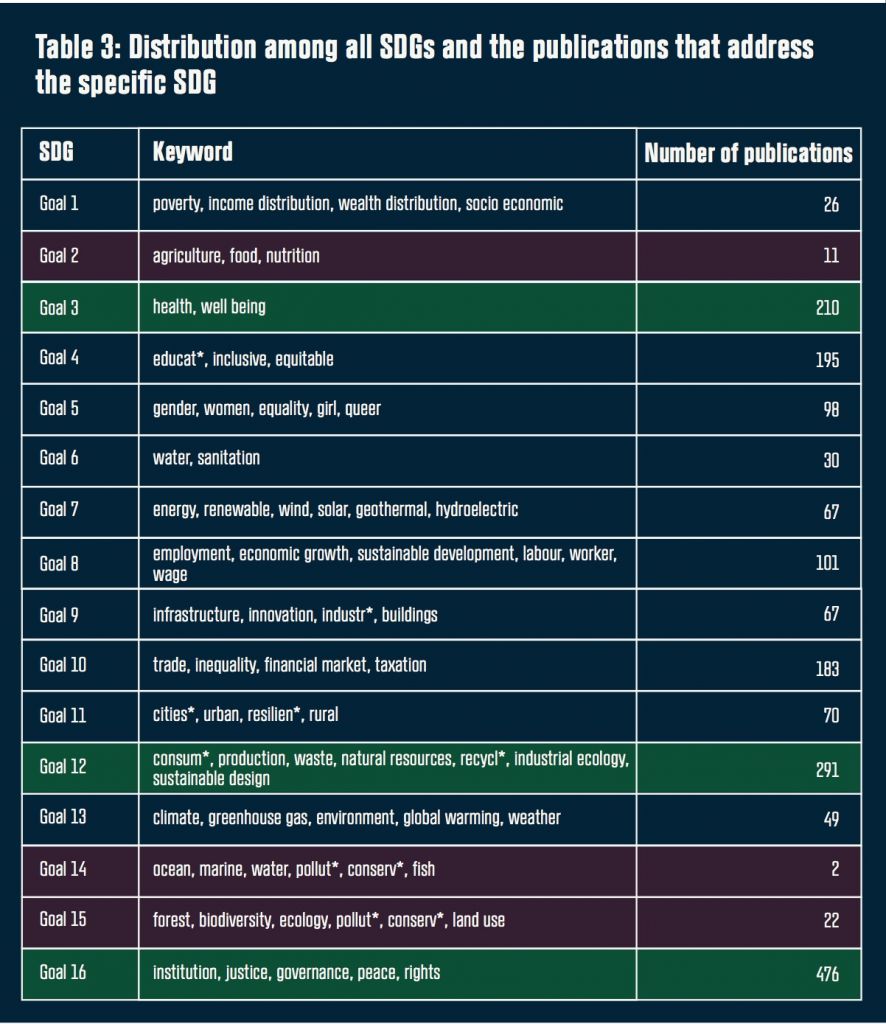
Table from the latest SDG mapping report
Kristjan Jespersen explains that Denmark’s 2030 strategy on CO2 emissions, the climate change challenges, and the issues addressed by the SDGs will evidently impact on the research agenda in coming years. So if CBS aims to help meet those goals or find solutions to the issues, more research is required.
“There are so many governance-related issues associated with the climate challenge, and with only 10 years to fulfill the SDGs and Denmark’s own goals, research is critical for achieving these ambitions. So we will probably see an increase in research related to SDG themes in follow-up reports,” he says.
Furthermore, CBS can use reports like this to document that the SDGs are present at CBS, as part of transiting towards a more sustainability focused university, explains Kristjan Jespersen.
“If we claim that we support the green transition, our own efforts and how we are supporting the transition must be clear. This can be accomplished through the Nordic Nine principles, a sustainability strategy, or this kind of mapping. They all fall under the same mission,” he says and continues:
“It is also an excellent way of differentiating CBS from other Danish Universities. To my knowledge this type of report does not exist amongst the different Danish universities.”
From research to classroom
For this report, Kristjan Jespersen chose several key words from each of the 17 SDGs and counted the hits recorded while searching among the more than 7,500 publications. Each hit matched a publication to one or more of the SDGs.
The search showed, for example, that a large amount of CBS research relates to goals 3, 12 and 16, and very little relates to goals 2, 14 and 15.
“I was actually impressed by the amount of planet-focused articles. For example, articles on sustainable consumption, behavioral economics in relation to sustainability and such. On that note, the researchers who are pushing for this deserve recognition,” he says and continues:
“However, this focus also illuminates the fact that too little research is being conducted on SDGs 13, 14, 15, Climate action, Life under water, and life on land. If we commit to being a university with a strategy focused on transitions, these key SDGs must rise to the same levels of excellent performance as other key indicators.”
Kristjan Jespersen has also explored whether the number of publications grouped into different thematic areas of the SDGs matches the number of courses offered within the same areas. And he made an interesting discovery, he explains.
For example, there is a “noteworthy difference” between the number of publications in the thematic areas of ‘People’ (SDGs: 2, 3, 4) ‘Planet’ (SDGs 6, 12, 13, 14, 15) and ‘Justice’ (SDG 16) and the courses offered in these fields. Although the three fields are popular research areas, that is not reflected in the number of courses offered, indicating that the research is not making its way to the classroom, explains Kristjan Jespersen.
“We should definitely bear this in mind,” he says and continues:
“I know that not all research is necessarily earmarked for the classroom, but as a university offering research-based teaching, we must ensure that relevant research is taught to our students. I know of other universities that don’t teach specific courses for more than two years in a row, as they believe that in order to have the best skills for the job market, course content must be up to date and relevant as well as impactful and fueled by research.”

Also, Kristjan Jespersen believes that with more research available to them, the students will find it easier to engage with the new knowledge as it is published.
“A lot of research goes on unnoticed, and that’s a shame. It could inspire the students, who can follow up on it in their theses and other activities,” he says.
Freedom of research remains intact
Kristjan Jespersen argues that there are several ways of making the research available in classrooms and making the SDGs a foundation for researchers’ work. Strategic hiring is one option, but another would include discussions among faculty members, and support for researchers who want to pursue SDG-related research topics.
“Many researchers are trying to find and get their minds around how to engage with the SDGs in a meaningful way, and this is where we need support and encouragement from the faculty,” he says and continues:
“And either way, we can see that research funds and research initiatives are starting to ask researchers to state specific links with SDGs in project applications. So it’s only a matter of time before that becomes another way to measure research.”
Kristjan Jespersen also expects partnerships with other institutions, such as the Technical University of Denmark and the University of Copenhagen, to be another option for increasing research and teaching within SDGs themes that are not natural CBS strengths, such as marine and ocean life.
Kristjan Jespersen strongly urges more researchers to include the SDGs in their research, but will CBS risk reducing its freedom of research by requiring its researchers to refer to the SDGs?
“That’s the trick. We don’t have to force anyone, and that’s the beauty of it. Everyone has freedom of research, but focusing on the SDGs is a way of finding new and continued means of relevance. It’s a way to show our government and our stakeholders that we share their commitment to care about these issues,” he says.
This report is the third in a series of reports. The next will focus on the sustainability of CBS campuses, which is expected to be completed later this year.




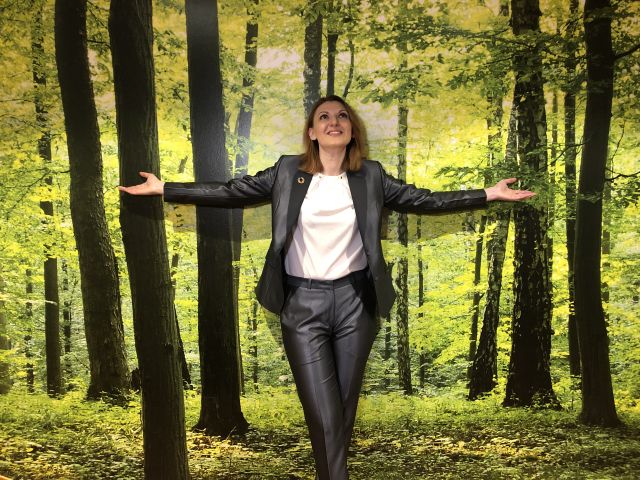

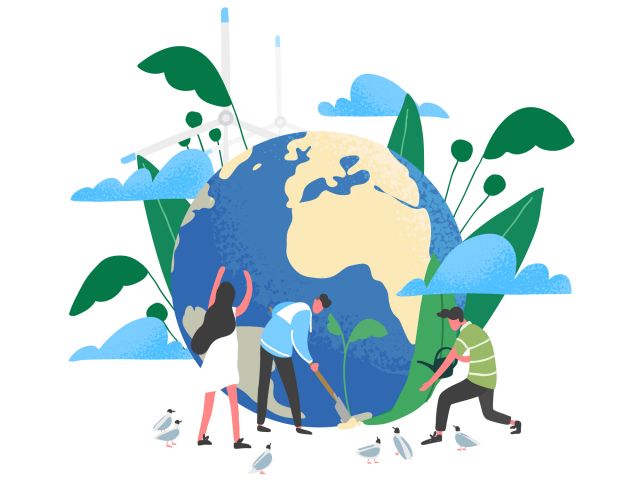
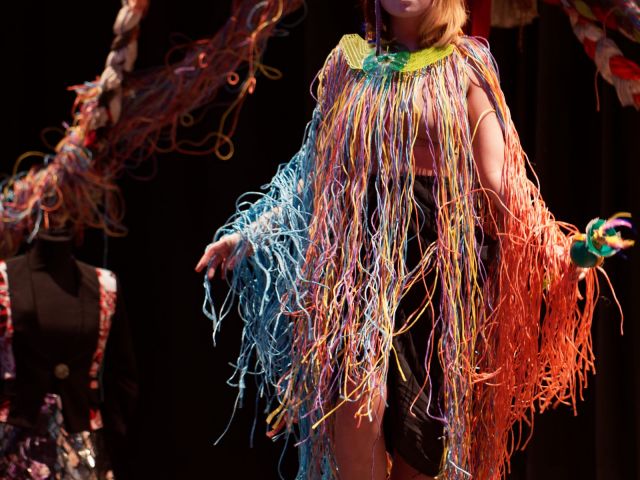
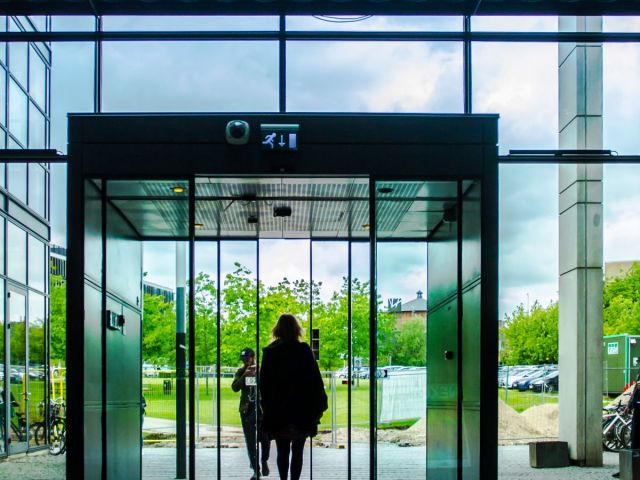
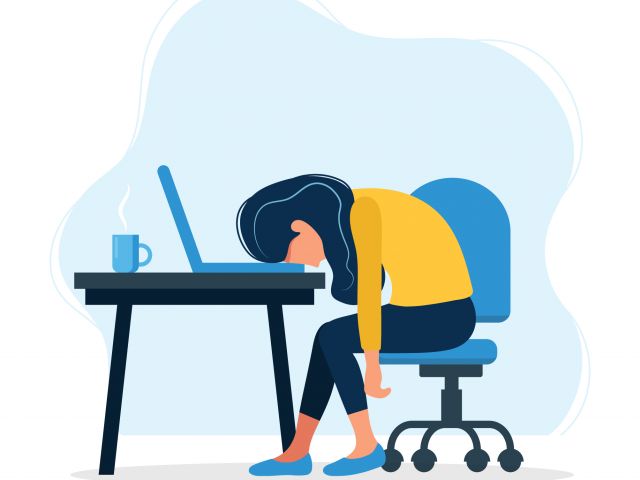




























































































































Comments